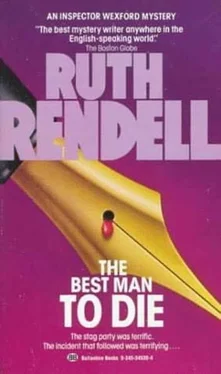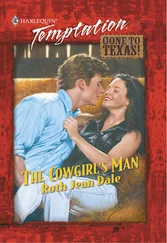Ruth Rendell - The Best Man To Die
Здесь есть возможность читать онлайн «Ruth Rendell - The Best Man To Die» весь текст электронной книги совершенно бесплатно (целиком полную версию без сокращений). В некоторых случаях можно слушать аудио, скачать через торрент в формате fb2 и присутствует краткое содержание. Жанр: Детектив, на английском языке. Описание произведения, (предисловие) а так же отзывы посетителей доступны на портале библиотеки ЛибКат.
- Название:The Best Man To Die
- Автор:
- Жанр:
- Год:неизвестен
- ISBN:нет данных
- Рейтинг книги:4 / 5. Голосов: 1
-
Избранное:Добавить в избранное
- Отзывы:
-
Ваша оценка:
- 80
- 1
- 2
- 3
- 4
- 5
The Best Man To Die: краткое содержание, описание и аннотация
Предлагаем к чтению аннотацию, описание, краткое содержание или предисловие (зависит от того, что написал сам автор книги «The Best Man To Die»). Если вы не нашли необходимую информацию о книге — напишите в комментариях, мы постараемся отыскать её.
The Best Man To Die — читать онлайн бесплатно полную книгу (весь текст) целиком
Ниже представлен текст книги, разбитый по страницам. Система сохранения места последней прочитанной страницы, позволяет с удобством читать онлайн бесплатно книгу «The Best Man To Die», без необходимости каждый раз заново искать на чём Вы остановились. Поставьте закладку, и сможете в любой момент перейти на страницу, на которой закончили чтение.
Интервал:
Закладка:
But it wasn’t her own bed and her own flat. Very carefully Mrs Fanshawe marshalled her thoughts and her memories. Jerome was dead, Nora was in Germany and she was in Something-or-other Royal Infirmary. A hospital. Very thoughtful of someone to have engaged a maid for her in hospital.
Unless this Rose was a nurse. Of course, she must be a nurse. What a fool I am, thought Mrs Fanshawe. I feel exactly as if I were having a very prolonged dream but every time I come out of it I’m so tired I fall back into it again.
The inaccurate information given by all these busybodies didn’t help at all. People were so inefficient these days. First her sister had forgotten to inform Nora, then this policeman said Nora had been with her and Jerome in the Jaguar. They must all think she was out of her mind. As if a mother didn’t know where her own daughter was! Why, she even remembered Nora’s address.
Goethestrasse 14, Köln, West Germany. Mrs Fanshawe was very proud of the way she wrote Köln like that instead of Cologne. What reserves of strength and intellect she must have to remember details like that! And after all she’d been through. Presently the nurse came back with the paper.
‘Thank you, Nurse,’ said Mrs Fanshawe to show what a fine grasp of things she had. She tried to hold the pen, but it zig-zagged all over the paper like that Planchette thing her father had used long ago.
‘Why not let me write it for you?’ said Nurse Rose.
‘Perhaps it would be better. I’ll dictate. Shall I begin?’
Nurse Rose had to exercise all her powers of concentration to sort out from the mumblings and digressions exactly what Mrs Fanshawe wanted to say. But she was a kind-hearted girl and, besides, it always paid to be attentive to patients in the private wing. Last year when one of them had left after only a fortnight she had given Nurse Rose a travelling clock and a nearly full bottle of Rochas’ Femme.
‘“Dearest Nora”,’ she read aloud, ‘“I am almost well again and think you should come and see me. Poor Daddy would have wished it. I expect auntie has told you everything and you have been too busy to come, but please come now. We will let bygones be bygones. Love from Mummy”. That all right, Mrs Fanshawe? I’ve got some stamps, enough to make up to ninepence. I think I’ll pop it in the post now when I go for my tea.’
Coming back from the pillar box at the end of Charteris Road, Nurse Rose met the Private Wing sister.
‘I’ve just been posting a letter for poor Mrs Fanshawe, Sister,’ she said virtuously. ‘I like to do what I can, you know. Anything to cheer them up. She was so keen to get a letter to her daughter off tonight.’
‘Her daughter’s dead.’
'Oh, Sister, you don’t mean it! Oh God, how dreadful! I never dreamt, I never guessed… Ooh, Sister!’
‘You’d better get back on duty, Nurse, and do try not to be so impulsive.’
Chapter 6
The child who opened the door to him was the one that had been out in the fields with his father. He was a boy of about seven, big for his age, aggressive looking and with food adhering to his face in greasy red and brown streaks.
'Who is it, Dominic?’ came a voice from the sleazy depths of this small and totally inadequate council house.
‘A man,’ said Dominic simply.
‘What does he want?’
To put an end to all this pointless colloquy, Wexford stepped into the hail, then the living room. Three more children were watching athletics on television. The remains of lunch were still on the stained crumb-scattered tablecloth and a woman sat at the table feeding a baby from a bottle. She might have been any age between thirty and sixty and Wexford set the lower limit so low only because of her young children. Her hair was thin and fair and long, caught back with an elastic band, and her face was thin and long too, wizened and pinched. A weariness that was as much chronic boredom as physical tiredness seemed the most dominant thing about her. It was the sordid exhaustion of poverty, of overwork, of perpetual near-incarceration, of eternal nagging demands, and to be left alone just to sit for perhaps only five minutes in unthinking apathy was her sole remaining desire. To this end she never wasted a word or a gesture and when she saw Wexford she neither greeted him nor even lifted her head, but said to one of her little girls:
‘Go and fetch your dad, Samantha.’
Samantha jerked a thick black cat off her lap and trailed listlessly via the kitchen to the back garden. A middle-class woman, a woman with more money and fewer children might have apologized for the squalor and the smell of a hundred stale meals. Mrs Cullam didn’t even look at him and when he asked her at what time her husband had come home on Friday night she said laconically, ‘Quarter past eleven.’
‘How can you be so sure of the time?’
‘It was a quarter past eleven.’ Mrs Cullam put the baby on the table among the crumbs, removing its napkin which she dropped on the floor, and said in the same low economical tone, ‘Get me another nappie, Georgina.’ A strong smell of ammonia fought with the cabbage. The baby, which was female, began to cry. Mrs Cullam lit a cigarette and stood against the table, her hands hanging by her sides, the cigarette dangling from her mouth. Georgina came back with a grey rag, sat down and watched her brother poke his fingers in the cat’s ears. ‘Leave the cat alone, Barnabas,’ said Mrs Cullam.
Her husband came in, drying his hands on a tea cloth, the black dog cowering at his heels. He nodded to Wexford and then he turned off the television.
‘Get up, Samantha, and let the gentleman sit down.’ The child took no notice and made no sound when her father slapped one arm and yanked her up by the other. He viewed the room helplessly, paying particular attention to the discarded napkin, but there was no disgust on his face, only a vaguely resentful acceptance.
Wexford didn’t take the vacant seat and something in his expression must have told Cullam he wanted privacy, for he said to his wife. ‘Can’t you get them kids out of here?’
Mrs Cullam shrugged and the ash from her cigarette fell into a plate of congealing gravy. She hoisted the baby on to her hip and dragging a chair close up to the television set, sat down and stared at the blank screen. ‘Leave the cat alone, I said,’ she remarked without heat.
‘What were you wanting?’ Cullam asked.
‘We’ll go into your kitchen, if you don’t mind, Mr Cullam.’
‘It’s in a right old mess.’
‘Never mind.’
Mrs Cullam made no comment. She switched on the television without looking up. Two of the children began to fight in the depths of their armchair. Wexford followed their father into the kitchen. There was nowhere to sit so, pushing aside the handles of four encrusted saucepans, he leant against the gas cooker.
‘I only want to know who McCloy is,’ he said mildly.
Cullam gave him a look of not altogether comfortable cunning. ‘How d’you know about McCloy, anyway?’
‘Come on now, you know I can’t tell you that.’ The children were screaming now above the sound of the racy athletics commentary. Wexford closed the door and he heard Mrs Cullam say, ‘Leave the bleeding cat alone, Barnabas.’ She had wasted a word. ‘You know who he is,’ Wexford said. ‘Now you can tell me.’
‘I don’t know. Honest I don’t.’
‘You don’t know who he is, but last night in the pub you asked Mr Hatton if he’d been seeing much of McCloy lately. You wouldn’t touch McCloy because you like to sleep quiet in your bed.’
‘I tell you, I don’t know who he is and I never saw him.’ Wexford removed his elbow from its dangerous proximity to a half-full plate of cold chips. ‘You didn’t like Mr Hatton very much, did you? You wouldn’t walk home with him, though he was going your way. So you went on ahead and maybe you hung about a bit under those trees.’ Pursuing the line, he watched Cullam’s big beefy face begin to lose colour. ‘I reckon you must have done, Cullam. A strong young fellow like you doesn’t take thirty-five minutes to get here from the Kingsbrook bridge.’
Читать дальшеИнтервал:
Закладка:
Похожие книги на «The Best Man To Die»
Представляем Вашему вниманию похожие книги на «The Best Man To Die» списком для выбора. Мы отобрали схожую по названию и смыслу литературу в надежде предоставить читателям больше вариантов отыскать новые, интересные, ещё непрочитанные произведения.
Обсуждение, отзывы о книге «The Best Man To Die» и просто собственные мнения читателей. Оставьте ваши комментарии, напишите, что Вы думаете о произведении, его смысле или главных героях. Укажите что конкретно понравилось, а что нет, и почему Вы так считаете.












